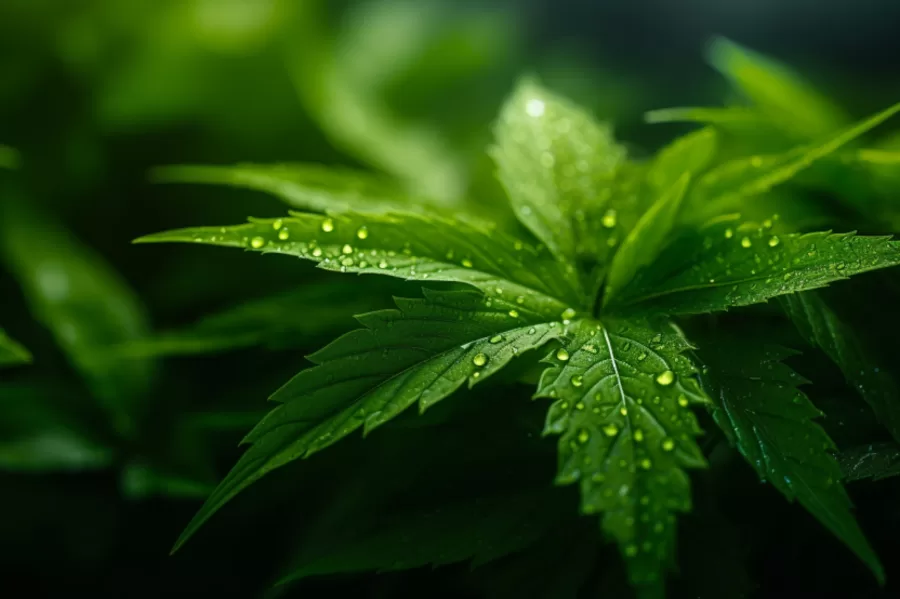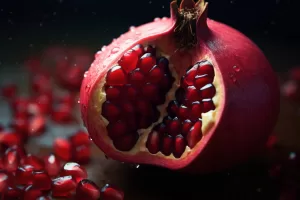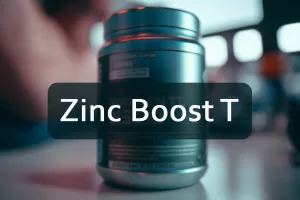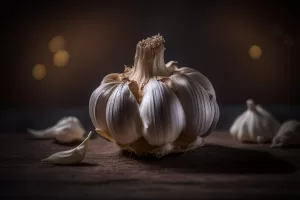Men who experience negative consequences of testosterone deficiency, often turn to testosterone-boosting supplements and natural remedies. Damiana leaf, well-known as a herbal aphrodisiac, is one of them. So, what are damiana’s effects on testosterone? Unfortunately, convincing evidence of the connection between the two simply does not exist.
How Damiana Affects Testosterone
The main proven pharmacological effect of damiana is its ability to inhibit aromatase. Aromatase is a compound involved in a metabolic process called aromatization which results in testosterone metabolizing into estrogen. The results of the research were published in The Journal of Ethnopharmacology in 2008 and revealed that two compounds of the damiana—pinocembrin and acacetin—have significant anti-aromatase properties.
However, while this effect prevents produced testosterone from turning into estrogen to some extent, it does not stimulate T production at all.
There are also studies claiming damiana’s protective properties against testicular toxicity induced by certain substances, such as Amitriptyline, fenitrothion, and hexavalent chromium, in rats. Intoxicated animals showed increased testosterone levels and positive histological changes in their reproductive system after damiana treatment. Furthermore, in another study, comparing sexually exhausted and sexually potent rats, treatment with damiana provided improvements only in the first group of testing subjects.
This data may look promising for those who have severely impaired testicular functions. But we need to remember that results demonstrated in mice not necessarily will repeat in human volunteers.
Understanding Testosterone
Testosterone (T) is commonly addressed as a male sex hormone. In reality, it is an anabolic-androgenic steroid hormone, present and significant both in male and female bodies.
In AMAB people, T is released by Leydig cells in the testicles. The process is regulated by gonadotropin-releasing and luteinizing hormones produced by the hypothalamus and pituitary gland respectively.
Testosterone Role
T drives the proper pubic development and is especially important for the formation of the reproductive system. In adult males, it is essential to preserve sexual functions (e.g. sperm count, libido, erection), have good mood and stamina, and for bone strength and erythrocyte production in the bone marrow.
When testosterone levels are too low, the person suffers from poor libido; erectile dysfunction; low sperm count and consequent infertility; body hair loss; poor mental focus and memory; depressed mood; and low energy levels. It also becomes very hard to shed weight and gain lean muscle mass, therefore, fat percentage grows, and muscle percentage decreases.
Factors affecting Testosterone levels
A health issue of insufficient T levels is called hypogonadism, or testosterone deficiency (TD). It may be caused by in-birth or acquired conditions affecting the testicles, hypothalamus, or pituitary gland. Physical damage to these organs, including injuries, traumas, and surgical intrusions, also can negatively affect testosterone production.
In addition to that, some factors can cause so-called secondary male TD:
- Poorly managed type 2 diabetes.
- Liver cirrhosis.
- Kidney failure.
- Treatment with certain drugs (for example, medications used to treat prostate cancer).
- Unhealthy lifestyle: smoking, drinking, poor diet causing obesity.
- High levels of stress.
- Aging. Testosterone production gradually declines naturally; more than half of men in their 80s have TD.
What is Damiana Leaf
Damiana is known to science under the name Turnera diffusa. It is a low-growing shrub with bright yellow flowers and small aromatic leaves. It is said that damiana’s odor can be slightly reminiscent of chamomile. The plant belongs to the family Passifloraceae.
Damiana contains many phytochemicals, including flavonoids (apigenin, acacetin, pinocembrin), tannins, aromatic phenols (such as thymol), and caffeine.
Forms of Damiana
As of today, you can find dried damiana leaves sold in bulk, for tea-making and bakery, ready-made infusions and alcohol-containing tinctures, powdered leaves, tea bags, and capsules.
Origin and historical use
Turnera diffusa is native to South and Central America, Mexico, the Caribbean, and southern Texas. In ancient times, it was widely used by indigenous populations, such as Aztecs and Mayans, for its supposed aphrodisiac properties.
Nowadays, damiana is quite popular as an ingredient for bakery and Mexican liqueur. It is often used for triple sec in margaritas.
Damiana Leaf and Testosterone
So, is it a good idea to try and take damiana leaf for testosterone? It is not likely. Let us assess the risk-benefit ratio together.
Benefits
We already know that acacetin and pinocembrin in damiana leaves inhibit aromatase saving one’s precious T from being turned into estrogen. There is also a study of the anti-anxiety properties of apigenin, another flavonoid found in the plant. The research, conducted on mice, revealed damiana’s potential in anxiety and depression treatment. This could also turn beneficial for sexual function in human patients, as we know that high levels of stress-induced cortisol harm testosterone production. Lastly, the restorative properties of damiana may be helpful for patients who experienced testicular toxicity from exposure to certain substances.
Potential risks
The first issue with herbal remedies is that we never know how much of beneficial phytochemicals they have accumulated during growth. The healing power of the plant depends heavily on the growing conditions. In the pharmaceutical industry, the issue is solved through standardized extracts, in hand-picked plants, we will never know.
The second issue is that in parallel with aromatase inhibition, damiana can exhibit estrogenic properties which is not good for male health. It also demonstrated the ability to bind progesterone receptors modulating the effect of progesterone on the body. This can result in low libido, fatigue, and prostate enlargement.
Thirdly, with herbal remedies, there is usually a higher chance of allergies because they are packed with bioactive phytochemicals. It is easy to discover that your body is overly sensitive to one of those.
How to Incorporate Damiana into a Diet
If you are determined to give damiana a go, you can opt for any supplement of your liking. It is available in almost any form possible, from tea to capsules. We advise you to consult your doctor before starting any new supplement and stop supplementation immediately if you notice any side effects.
Choose high-quality supplements
Remember that supplements are not regulated and controlled by FDA. Therefore, their quality is totally left to the conscience of the manufacturer. Stick to trusted brands with GMP-compliant facilities that bring third-party testing laboratories to prove the quality of their product.
Recommended dosages
There is no sufficient scientific data regarding the effective dosage of damiana leaves. The manufacturer’s recommendations will vary depending on the kind of product (tea bags and capsules will have different instructions). Be sure to take the supplement following the directions on the label.
Summary
No convincing evidence was found to prove the valuable effect of damiana on testosterone. While demonstrating aromatase-inhibiting properties and anti-anxiety effects, it can also be estrogenic and further harm hormone balance in the male body. We do not recommend damiana as a natural remedy for testosterone deficiency.
FAQs
Does damiana boost testosterone?
There is no scientific proof of that suggestion.
What does damiana do for men?
It can relieve anxiety and reduce aromatization but, in parallel, damiana can be estrogenic.
What herb has the most testosterone?
T is a human hormone; it is not contained in herbs or other foods. However, there are plants and foods, that show testosterone-boosting abilities, such as pomegranate, garlic, etc.







